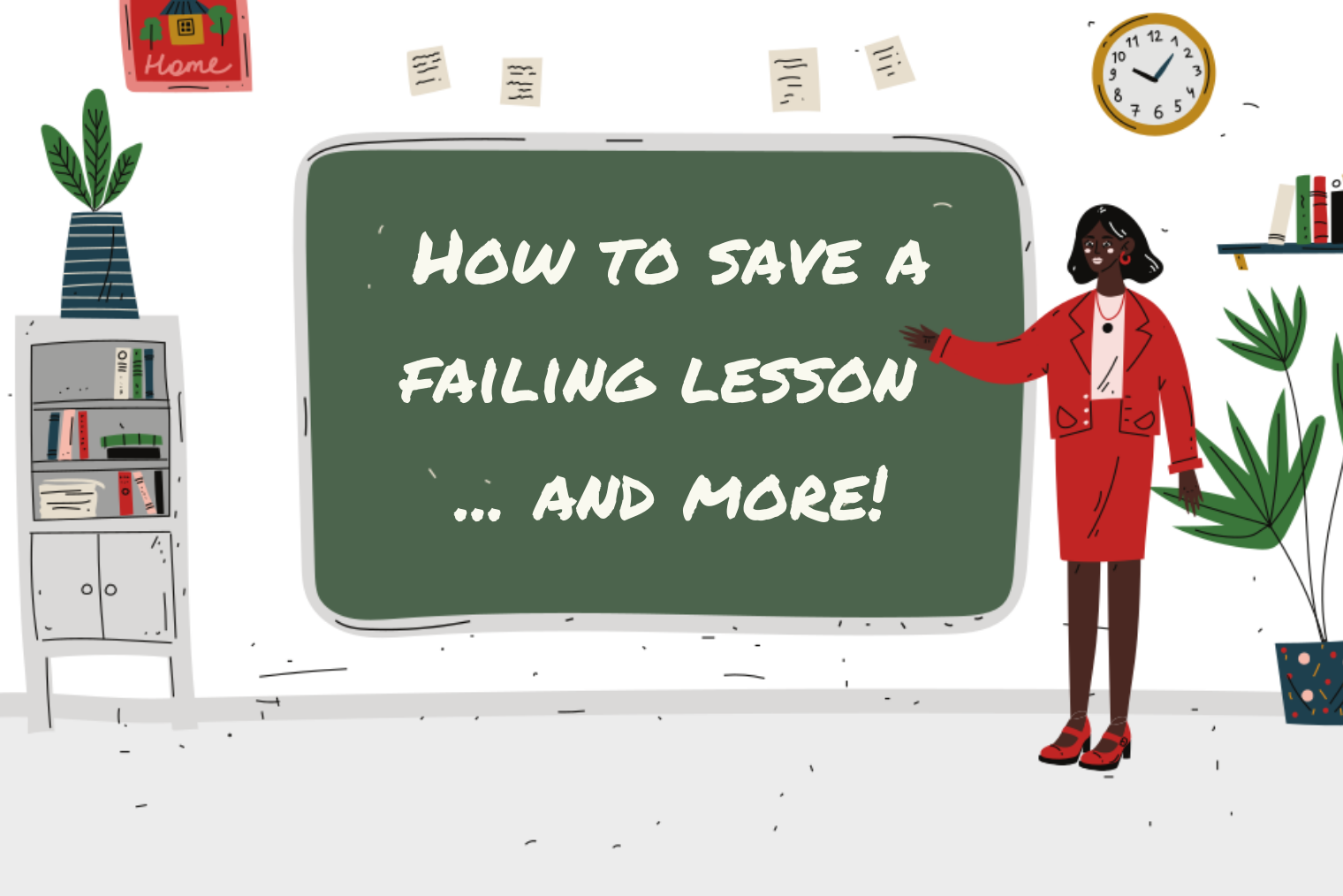
Near the end of last year, we asked you if you had any tips and advice for young teachers who are just starting in the profession. You really came through, and for World Teachers’ Day, we posted a whole blog filled with handy tips. You can find that here.
However, there were so many great examples of classroom stories, and hilarious highlights that we just had to compile a second post. And so here we are!
We hope you enjoy. Thanks again to Tyson Seburn, Frances Amrani, Julietta Schoenmann and Dale Prince for their excellent advice!
Is there anything you wish you’d known when you first started teaching?
“I wish I had a couple of ideas for vocab games etc, up my sleeve to throw in at the end of a lesson that hadn’t gone on long enough. Once you have a few of them you feel a lot safer.”
“There is no such thing as ‘one perfect way’ to teach; there are options, some better than others.”
“That students need grammar and vocabulary preparation before doing a role play. I used to say ‘You’re the doctor…you’re the patient…you’ve got a headache…now have a conversation’ and then wonder why students spoke for about a minute in English then reverted to their mother tongue for the rest of it!”
“It’s OK not to know everything and to say such to learners, but that you will learn about it too. We are all learners.”
What were you surprised about or weren’t expecting?
“How much responsibility you are given from day one. Teachers are often expected to deal with questions and issues they don’t have the answers for. That’s OK. Be prepared to think on your feet and ask for help when you need it.”
“The varying abilities of all children and the expectations that are set upon them.”
“The difficulty students have in learning vocabulary – how long it takes them to learn words and how much recycling is needed to support them in this process.”
“How much of a model we are for our learners in all aspects and thus incorporating this consideration into our teaching materials and pedagogies is important.”
Do you have any teaching highlights?
“Just the fun, funny, lessons. I had a class of very low-level students, to whom I had to teach travel English for 2 hours, for 12-weeks. They were lovely old ladies, but the classes (which were task-based in nature) were doomed to fail from the outset. It was pretty hilarious at times, but quite stressful. Then, when finally the 12 weeks was up … they all booked in to do the course again. It was all a bit Groundhog Day, but touching that they all wanted to have another go.”
“I particularly like it when students who come to you silent blossom into confident speakers. I have had this happen a few times with Chinese IELTS students and groups of Algerian students needing English for the workplace.”
“Creating an alien crash landing for my children.”
“When my secondary school students got totally wrapped up in a project where they created their own country in groups: they had to make up a culture, recipes, clothes, flag etc. I had no idea initially that the project would interest them so much but it ended up being one of the most successful things I did with them.”
“When you’re in the middle of a class and you suddenly come up with a more engaging or clear way to introduce or practice the language at hand, that’s when things feel the best.”

What advice do you have for saving a failing lesson?
“Don’t stress. Just abort activities if they aren’t going well. You learn to adapt as you get more experienced. I read somewhere that if every lesson you teach ‘goes well’, you’re not pushing hard enough. Try new things, and learn from your mistakes. Following this approach, about 1 lesson in every 10 should be a complete disaster.”
“Stop. Change direction. Do something else to lighten the mood (or make things more serious), then come back to the failed learning objective at a later date with a new considered approach. An example might be a quick spelling test e.g. 10 words, which can give you some thinking time for the next activity, or a game like drawing dictation- in pairs one student describes a scene (magazine photos work well) and the other has to draw it from the spoken instructions.”
“Try not to panic. Students may not realise it’s failing and you can make changes at the time then repair any damage in subsequent lessons.”
“Scale it back. Scrap it, rethink, reteach!”
“Take a quick breather. Remain calm. It’s not the end of the world. Pretend whatever has just happened is in the past because it is and start the next part with a fresh attitude. Learners often don’t recognise what is failing as much as you think you do.”
And that’s that – thanks for reading. Do you have any advice for future teachers, or teaching highlights from own class? Leave a comment below; we’d love to hear your thoughts!


